Description
What is a 4G LTE 5G NR 6G Antenna For Wireless Communication?
The 4G LTE 5G NR 6G Antenna For Wireless Communication CTRF-ANTENNA-AP-82600-35223-SMA is a full band 4G 5G 6G SMA antenna rubber duck antenna manufactured by C&T RF Antennas Inc for wireless communication.
The 4G LTE 5G NR 6G Antenna For Wireless Communication has an extra-wide band frequency from 824MHz to 6000MHz frequency including ISM/SCADA/Utilities/IoT/NB-IoT/LoRa/4G LTE/LTE-IoT/5G NR/6G communication applications.
The 4G LTE 5G NR 6G Antenna For Wireless Communication Omni Dipole Rubber Duck Antenna comes with a 90-degree foldable hinge plastic ABS material radome and standard SMA connector, 223x35mm IP66 waterproof grade antenna size, Omnidirectional 360-degree radiation.
We have a small size 192x16mm with the same function 4G 5G Wireless 6G Omni Dipole Antenna and 27x223mm 4G LTE 5G New Radio Sub-6G Omnidirectional Antenna for your choice.
The 4G LTE 5G NR 6G Antenna For Wireless Communication is available at C&T RF Antennas Inc. The LTE 4G 5G NR 6G antenna manufacturer in China. we provide RF Antennas with multi-frequency bands such as 169MHz, 230MHz, 315MHz, 433MHz, 868MHz, 915MHz, Lora, NFC, VHF&UHF, NB-IoT, ADS-B, GSM, Wifi 2.4GHz, 5.8GHz, 2G 3G 4G LTE, GPS, GNSS, 5G NR, UWB, etc.
C&T RF Antennas Inc provides the 4G LTE 5G NR 6G antenna with many antenna types such as Dipole Antennas, Whip Antennas, Marine Antennas, Router Antennas, MIMO Antennas, Combo Antennas, PCB Antennas, FPC Antennas, Spring Antennas, Sector Antennas, Yagi Antennas, etc., for IoT & M2M industries.
This 4G LTE 5G NR 6G Antenna For Wireless Communication Omni Dipole Rubber Duck Antenna supports the following frequency bands:
5G NR: N41/N77/N78/N79
LTE-FDD: B1/B3/B5/B7/B8/B18/B19/B20B26/B28/B32
LTE-TDD: B34/B38/B39/B40/B41/B42/B43
Measured support module model:
5G module MH5000-31
5G module SIMCOM SIM8200EA M2
5G modules move away RM500Q
5G module MAG SRM825
5G module Fibocom FIBOCOM FM150
5G module China Mobile FO2x, F03
5G module Longsun EX510
And for domestic 5G modules
4G LTE 5G NR 6G Antenna For Wireless Communication Omni Antenna Features
Sensitive signal
Stable sending and receiving
Gain 8DBI
SMA Standart Connector
high performance
Low power consumption
5G antenna signal strong and wide coverage
90-degree folding
Can be folded at will, easy to use
4G LTE 5G NR 6G Antenna For Wireless Communication Omni Antenna Specifications
4G LTE 5G NR 6G Antenna For Wireless Communication Omni Antenna Electrical Specifications |
|
| RF Antenna Type | Omni Rubber Duck Antenna |
| Model | CTRF-ANTENNA-AP-82600-35223-SMA |
| Frequency Range | 824-6000MHz |
| Gain | 4-8dBi |
| VSWR | ≤2.0 |
| Impedance | 50 Ω |
| Polarization | Linear |
| Directional | Omnidirectional |
| Connector | SMA Male |
| Max Power | 50W |
| Lightning Protection | DC-Ground |
4G LTE 5G NR 6G Antenna For Wireless Communication Omni Antenna Mechanical Specifications |
|
| Dimension | 35*223mm |
| Weight | Approx. 25g |
| Radome Material | Plastic ABS |
| Operation Temperature | -20˚C ~ +80˚C |
| Storage Temperature | -40˚C ~ +80˚C |
| Color | Black or White |
| Antenna Design | Dipole Array |
| Mounting | SMA Connector |
| SafetyEmission and other | RoHS Compliant |
| Applications | ISM/SCADA/Utilities, IoT/NB-IoT/LoRa/GSM/UMTS/GPRS/WCDMA, 2G 3G 4G LTE/LTE-IoT/5G NR/6G, etc |
C&T RF Antennas Inc Is The 4G LTE 5G NR 6G Antenna For Wireless Communication Manufacturer, Contact Us For the 5G NR 6G Antenna Datasheet & 5G NR 6G Antenna Pricing & 5G NR 6G Antenna Inventory, or other 5G NR 6G Antenna styles.
The evolution of antenna technology
The earliest form a single array antenna to multiple arrays and then to multiple units, from passive to active systems
From simple MIMO to massive MIMO systems, from simply fixed beams to multi-beams.
Antenna design trends
For base stations, a major principle of antenna design is miniaturization.
The antennas of different systems are designed together. In order to reduce costs and save space, they must be small enough. Therefore, the antennas need to be multi-band, wide-band, multi-beam, MIMO Massive MIMO, and MIMO isolation. MassiveMIMO has some special requirements for the hybrid mutual coupling of the antenna.
The antenna needs to be tunable
The first-generation antenna was mechanically realized inclination, and the third-generation realized remote ESC. If 5G can realize self-tuning, it is very attractive.
For mobile terminals, the requirements for antennas are also miniaturized, multi-band, wide-band, and tunable. Although these features are now available, the requirements of 5G will be even more demanding.
In addition, the antenna of 5G mobile communication also faces a new problem-coexistence.
To achieve Massive MIMO, multiple antennas are required for both sending and receiving, that is, multiple antennas at the same frequency (8 antennas, 16 antennas…). The biggest challenge that such a multi-antenna system brings to the terminal is the problem of coexistence.
How to reduce the mutual influence on the couple, how to increase the channel isolation…This puts forward new requirements for 5G terminal antennas.
Specifically, the following three points will be involved.
Reduce the mutual influence, especially the mutual interference between different functional modules and different frequency bands. Previously, the academic circles thought that this would not exist, but this problem does exist in the industry.
Decoupling. In a MIMO system, the mutual coupling of antennas not only reduces the channel isolation but also reduces the radiation efficiency of the entire system.
In addition, we cannot expect to rely entirely on high-frequency millimeter waves to solve the performance increase, such as 25GHz.28GHz…60GHz all have system problems
De-correlation can be solved by the cooperation of antenna and circuit design, but the bandwidth of the circuit solution is very limited, and it is difficult to meet the bandwidth of all frequency bands.
Antenna technology of 5G system
This includes the design of a single antenna and the technology at the system level.
The system-level has been mentioned above, such as multi-beam, beamforming, active antenna array, Massive MIMO, etc.
From the perspective of specific antenna design, the technology developed from the concept of metamaterials will be of great benefit. At present, metamaterials have achieved success in 3G and 4G, such as miniaturization, low profile, high gain, and high-frequency bands.
The second is the substrate or package integrated antenna.
These antennas are mainly used in higher frequency bands, that is, millimeter wave bands. Although the size of the high-frequency antenna is small, the loss of the antenna itself is very large, so it is best to integrate the antenna with the substrate or a smaller package on the terminal.
The third is an electromagnetic lens.
The lens is mainly used in the high-frequency band. When the wavelength is very small, a medium can be used to focus. The high-frequency antenna is not large, but the wavelength of the microwave band is very long, which makes the lens difficult to use. It will be big.
The fourth is the application of MEMS.
When the frequency is very low, MEMS can be used as a switch. In the mobile phone terminal, if the antenna can be effectively controlled and reconstructed, one antenna can be used for multiple purposes.
4G LTE 5G NR 6G Antenna Rubber Duck Antenna Features

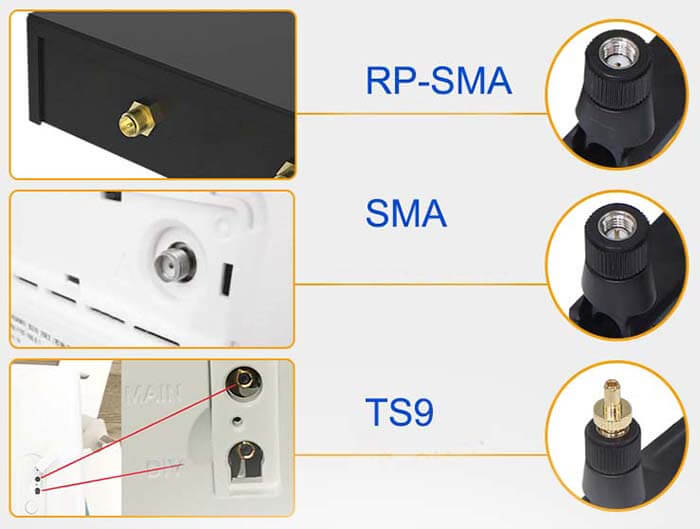
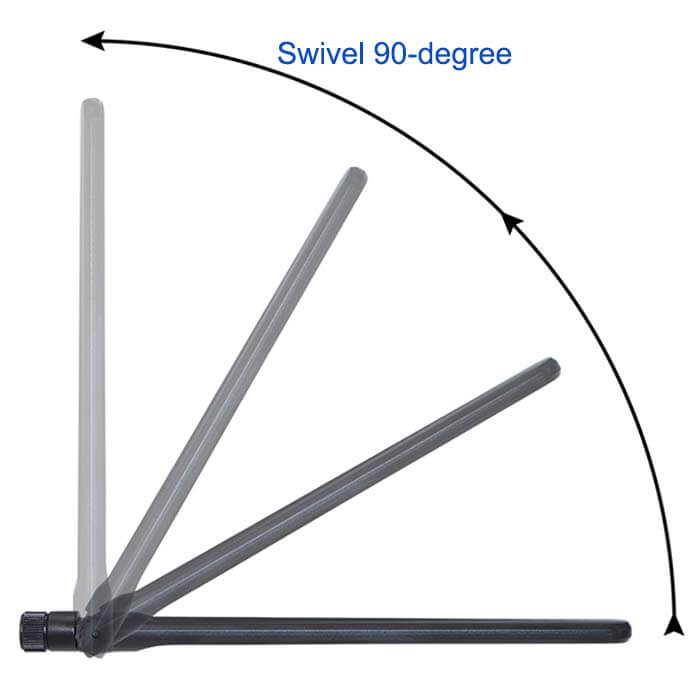
4G LTE 5G NR 6G Antenna For Wireless Communication Applications
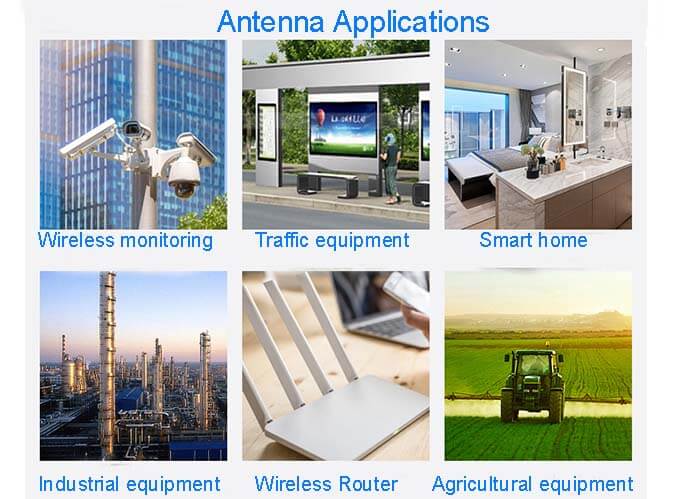

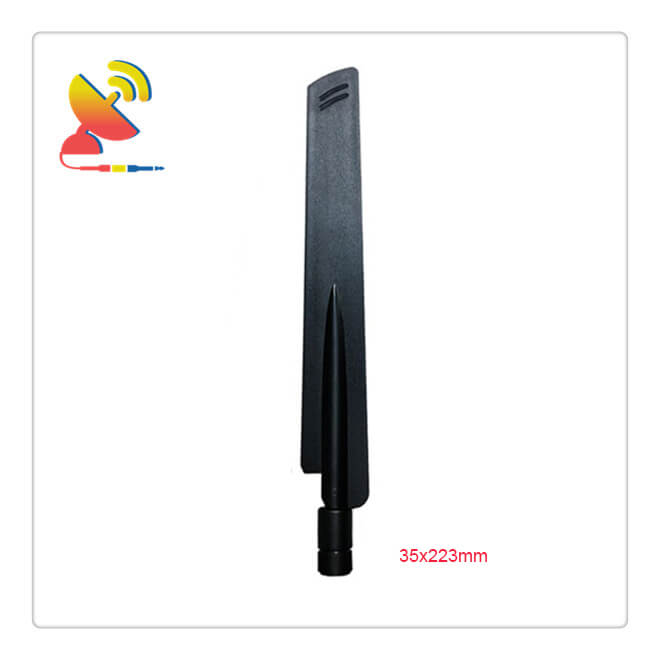
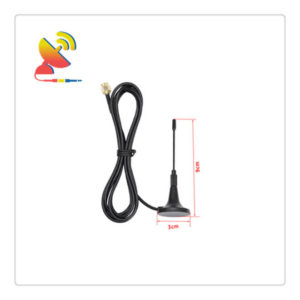
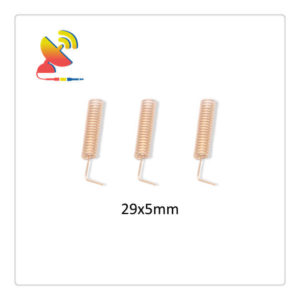
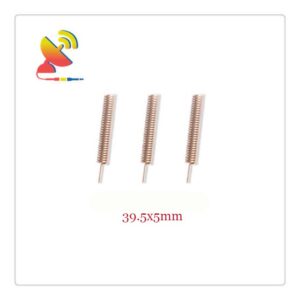
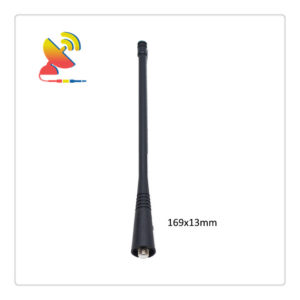
Reviews
There are no reviews yet.